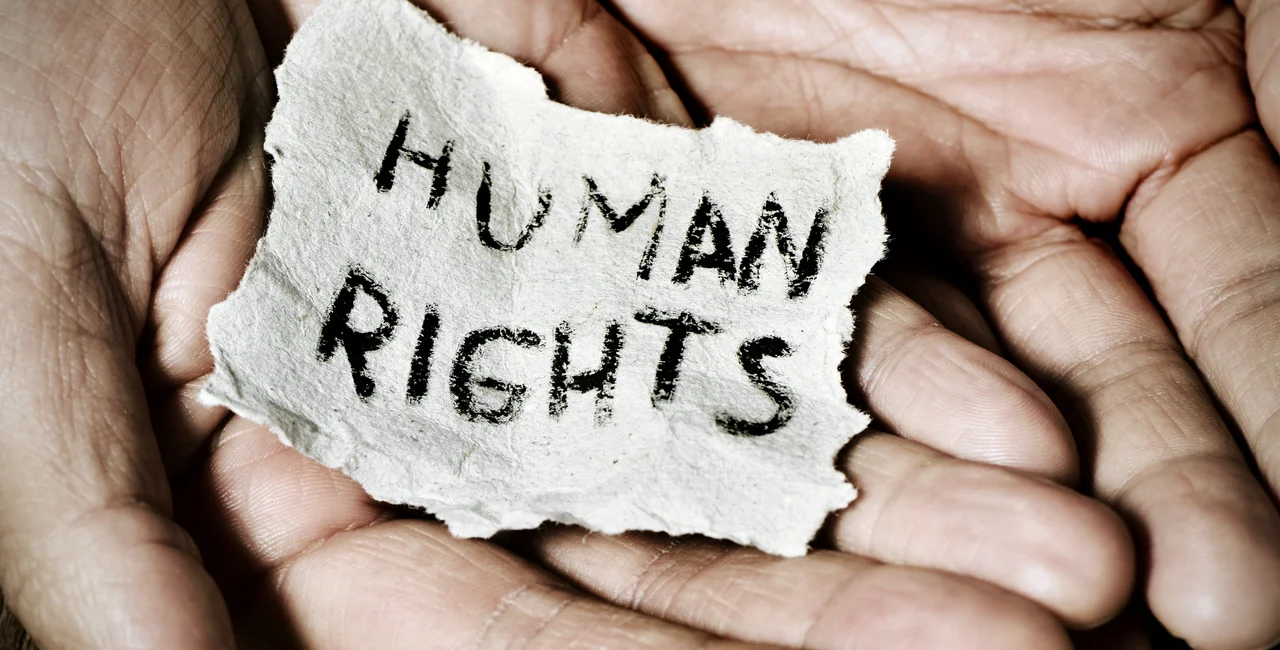Last week the UN General Assembly voted overwhelmingly for the Czech Republic to replace Russia in the United Nations Human Rights Council, suspended over its horrific rights violations by Russian soldiers in Ukraine.
While many welcome the move noting Czechia's achievements in accomodating Ukrainian refugees and sending aid, some point out the dichotomy between the membership in HRC and the country's discriminatory record in regard to minorities.
Discrimination in Czechia
Compared to many UNHRC members, among which are the world's worst violators, the Czech Republic joining the UNHRC comes across as a fair and rational development.
However, Czechia's record in discrimination of minorities, anti-immigration stances (except for the Ukrainian refugees), and gender-related issues leaves much room for improvement.
Segregated and marginalized: Roma minority
The systematic discrimination against Roma has been ongoing in the Czech Republic for decades, if not centuries.
One of the most prominent issues related to discrimination against the community relates to the segregation of Roma children in schools where they have been routinely packed off to schools for the "mentally deficient." Even though the problem is an acknowledged yet underreported reality, the government has failed to address deeply ingrained prejudice within the education system.
The treatment of Roma people in the Czech Republic is said to echo the struggles that African-Americans are facing in the United States. Stanislav Tomáš, who died during police intervention against him in the town of Teplice on 19 June 2021, has been referred to as the “Czech Floyd.” Reports reveal several mistakes in the police's handling of the situation.
Another gross violation of human rights occurred when thousands of Roma women were unlawfully sterilized between 1966 and 2012 when the communist government of then Czechoslovakia enacted an official policy of sterilizing women from the Roma community, whom the authorities described as “culturally substandard."
Roma women were often handed approval forms to sign while receiving cesarean sections or during other surgery, many unknowingly signing permission for sterilization. Some Roman women were threatened that their children would be taken away from them unless they signed the permission for sterilization.
The decades-long practice coarsely violated the right to be free from torture or ill-treatment. In July 2021, the Senate finally voted for a bill to compensate thousands of Roma women who were unlawfully sterilized by the authorities between 1966 and 2012.
While discrimination against the Roma minority is a result of deeply entrenched cultural prejudice as well as the outcome of socio-economic policies that put the community at disadvantage on a systemic level, there were attempts by the government to mitigate the issue.
In August 2021, the Constitutional Court set aside an amendment to the law on welfare benefits on the grounds that it would be discriminatory to exclude certain categories of residents. The amendment disproportionately targeted Roma and the poor population as it allowed municipalities to declare zones of “socially pathological behavior," residents of which were barred from claiming some housing benefits.
Nevertheless, the positive progress in the policy of recent years has been hampered when the City moved to set up the tent town in Prague's Troja to accommodate primarily Roma refugees last week.
BÄ›hem noci jsme vybudovali s dobrovolnými hasiÄi stanové mÄ›steÄko pro uprchlÃky z Ukrajiny. Jedná se o doÄasné krátkodobé ubytovánà ve stanech, které mohou být v pÅ™ÃpadÄ› potÅ™eby i vytápÄ›né.
— HasiÄi Praha 🚒 (@HasiciPraha) May 12, 2022
Stany jsou vybaveny lůžky pro 150 osob, mÄ›steÄko má sociálnà zázemÃ, sprchy a toalety. pic.twitter.com/Q1b3N8cSPC
The inability of the Czech government to accommodate hundreds of Roma refugees fleeing the war in Ukraine is in line with the government's previous politics of migration.
The upsurge of refugees who sought refuge in Europe in 2015 was met with unprecedented hostility from an overwhelming majority of citizens of most of the post-communist Central European countries, including Czechia.
Since the beginning of the European refugee crisis, President Zeman has become a major catalyst for the construction of a mendacious anti-refugee narrative in the Czech Republic.
The country has been notorious for defiant anti-Muslim, anti-refugee, racist, and xenophobic rhetoric. One example would be the anniversary of the 1989 Czechoslovak Velvet Revolution in November 2015, when Zeman sang the Czech national anthem on stage with an extremist anti-Islamic activist who demanded that gas chambers and concentration camps be set up for Muslims.
While the Czech Republic has shown overwhelming support to the Ukrainian refugees, it is easy to understand how Czechs relate to the tragedy of displaced Ukrainians fleeing their country from Russian aggression. But the apparent discrimination of Roma refugees from Ukraine reveals that xenophobia and racism endure in the Czech society.
No progress on the gender-based violence front
The Czech Republic has still not ratified the Istanbul convention aimed at preventing violence against women, protecting victims, and ending impunity for perpetrators. When the Czech Republic signed the Convention on May 12, 2016, it was one of the last member states of the EU to do so.
At the beginning of 2022, the government postponed the discussion about the ratification of the treaty until 2023.
The Convention considers violence against women to be a severe violation of human rights as well as a form of discrimination and strives to achieve zero tolerance toward gender-based violence.
“We would like to provide sufficient time to discuss the issue in question politically. This of course does not rule out further steps toward the decision on whether the Istanbul Convention will be ratified or not, provided there is a political consensus before the date,” Justice Ministry spokesman Vladimír Řepka said.
Apparently, seven years have not been enough to find the time for reaching the "political consensus" on ensuring women's rights.
The treaty, which condemns domestic violence, sexual harassment, rape, forced marriages, so-called honor crimes, and female genital mutilation, meets strong opposition from Czech conservative parties and the Catholic church. They say the convention is not needed, and it places men and women in opposition.
The ratification of the Istanbul Convention would signify an important step toward tackling the issues of gender equality and violence against women. As long as the country's top leadership continues to halter the process pressured by conservative groups, it is hypocritical for the government to speak about the promotion of human rights in the international arena when the country withstands the implementation of a mechanism to ensure basic human rights to protect the vulnerable groups in Czechia.
What is the significance of Czechia joining the UNHRC?
One thing needs to be straightened out right away: the membership in the body is not determined by the country's success in addressing human rights violations.
The members of the 47-nation Council, who are elected for three-year terms by the UN General Assembly, are chosen geographically: Africa and Asia each get 13 seats; Latin America and the Caribbean get eight; Western Europe and others, including the US, Canada, Australia, and New Zealand, get seven; and Eastern Europe gets six.
Although this geographical quota system addresses the disparities in global representation, it is also the Council’s gravest flaw. With a few exceptions in Western Europe and other groupings, the overwhelming majority of countries have fundamentally flawed, and sometimes abysmal, human-rights records and policies. Many of the UNHRC'S members are not democracies, few have representative governments, and even fewer have an incentive to pursue and commit to universal human rights.
On one hand, Czechia's accession to the body is likely to be a purely symbolic move.
On the other, it could signify a potential return to the Czech great foreign policy tradition focused on the promotion of human rights. Once elected in 2021, the government, in fact, pledged a change of course in foreign policy based on Vaclav Havel’s values, accentuating human rights and civil society.
While the UNHRC is an imperfect body, Czechia taking such a strong stance in the international arena may mark the country's aspirations to improve itself.












 Reading time: 6 minutes
Reading time: 6 minutes 



 English
(Advanced)
English
(Advanced)

























